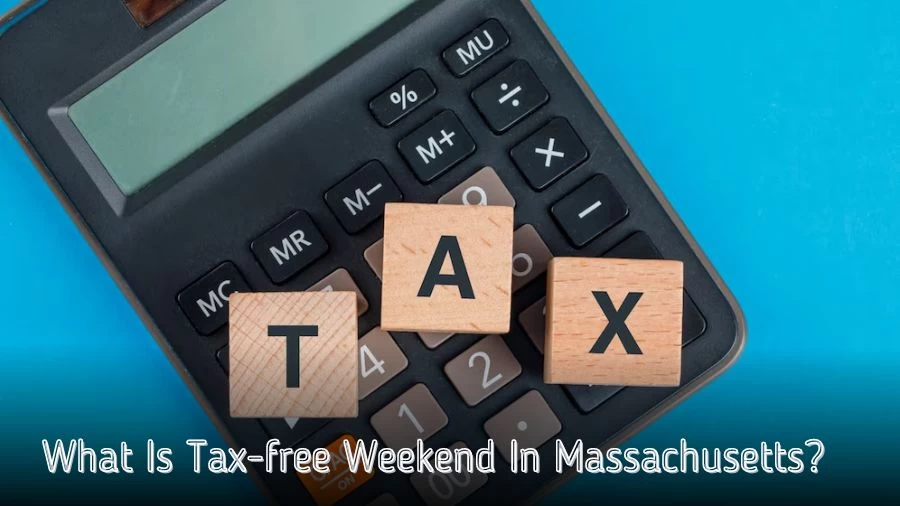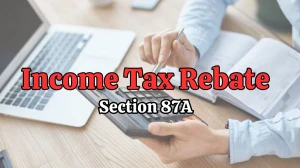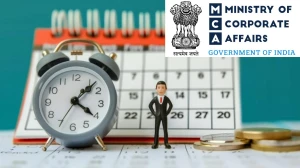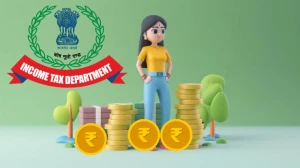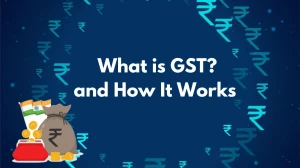
What is Tax-Free Weekend in Massachusetts? When is Tax-Free Weekend in Massachusetts?
Tax-Free Weekend in Massachusetts allows shoppers to make certain purchases without paying sales tax, and it occurred on August 12th and 13th in 2023.
by Kowsalya
Updated Aug 16, 2023
On This Page
- What is Tax-Free Weekend in Massachusetts?
- When is Tax-Free Weekend in Massachusetts?
- Is There a Tax-Free Weekend in Massachusetts This Year?
- What Can I Buy During Tax-Free Weekend in Massachusetts and Not Pay Taxes?
- Do Online Purchases Count During the Sales Tax Holiday?
- What’s Still Taxable?
- Does Amazon Participate in Massachusetts’ Tax-Free Weekend?
- What Items Qualify for Tax-Free Weekend in Massachusetts?
- What Are the Advantages of Tax-Free Weekend in Massachusetts?
What is Tax-Free Weekend in Massachusetts?
The Massachusetts tax-free weekend is a special two-day occasion when shoppers can make purchases without incurring sales tax, leading to potential savings of $6.25 for every $100 spent on qualifying items.
The tax-free weekend for 2023 took place from Saturday, August 12, to Sunday, August 13. Although Massachusetts offers a broader range of tax-exempt items compared to other states during their tax holidays, certain exclusions remain in effect. To be eligible, items must be intended for personal use rather than for resale or business purposes. This event provides an opportunity for consumers to enjoy reduced costs on various purchases, making it a popular time for shopping and taking advantage of the temporary tax break.
When is Tax-Free Weekend in Massachusetts?
Get ready, Massachusetts is bringing back the tax-free weekend for 2023! Following its establishment in 2018, this annual event grants shoppers a break from taxes on a specific weekend each year. From Saturday, August 12th through Sunday, August 13th, 2023, consumers will enjoy another tax-free weekend.
During August 12th and 13th, 2023, Massachusetts shoppers will be relieved from the 6.25% sales tax on individual items valued at $2,500 or less, as long as they are not among the exclusions listed under "purchases not eligible."
This upcoming weekend, August 12 and 13, will mark the tax-free period. Purchases of most retail items up to $2,500 intended for personal use in Massachusetts will be exempt from sales tax. This initiative made permanent in 2018, aims to stimulate small businesses and encourage shopping activity.
Is There a Tax-Free Weekend in Massachusetts This Year?
Yes, there is a tax-free weekend in Massachusetts this year. In the year 2023, Massachusetts residents and visitors experienced a tax-free weekend spanning from Saturday, August 12th to Sunday, August 13th.
Throughout these two days, a unique opportunity arose for shoppers to engage in purchases without the obligation of paying the standard sales tax on items that qualified for the exemption.
This time-limited period allowed individuals to enjoy cost savings and financial relief on their transactions. By abstaining from the typical sales tax, shoppers could allocate their funds more efficiently and indulge in desired items or necessities. This initiative aimed to stimulate consumer spending, support local businesses, and provide an incentive for individuals to engage in retail activities during the designated tax-free window.
What Can I Buy During Tax-Free Weekend in Massachusetts and Not Pay Taxes?
Now is the ideal moment to shop for back-to-school supplies and electronics. It presents a favorable opportunity to acquire items like laptops, tablets, or gaming systems that you've been planning to buy.
Additionally, it's a beneficial weekend for considering significant purchases that don't exceed $2,500, such as wedding attire, suits, furniture, jewelry, and workout equipment like the sought-after Peloton bike. Notably, while automotive repairs retain their regular charges, car parts remain exempt from taxation during the sales tax holiday. This period encourages savvy shopping decisions, enabling individuals to invest in both practical and leisurely items while enjoying the tax-free advantage.
Do Online Purchases Count During the Sales Tax Holiday?
When shopping online, your purchases will qualify for the sales tax holiday exemption if you complete them within the specified time frame of the holiday in Eastern Daylight Time.
It's important to note that purchases made after Sunday midnight won't be eligible. The exemption applies regardless of when the item is delivered, even if it's after the sales tax holiday weekend.
However, it's prudent to double-check the tax amount during checkout, especially with smaller retailers who might not be fully aware of the exemption. It's worth emphasizing the aim of supporting local businesses, so take the opportunity to contribute to Massachusetts' small business community by making your purchases. This initiative not only benefits shoppers but also bolsters the local economy.
What’s Still Taxable?
The United state has provided a list of items that are considered taxable and are excluded from the sales tax holiday exemption. These items are as follows:
- Meals
- Motor vehicles
- Motorboats
- Telecommunications services
- Gas
- Steam
- Electricity
- Tobacco products
- Marijuana or marijuana products
- Alcoholic beverages
- Any single item with a price exceeding $2,500.
Does Amazon Participate in Massachusetts’ Tax-Free Weekend?
Amazon actively engages in sales tax holidays, including events like Massachusetts' tax-free weekend. As per the information provided on Amazon's sales tax holidays webpage, the platform's system automatically calculates the applicable tax on items that are subject to taxation. This means that before finalizing your order, you should have been able to discern which items were taxable and which were not.
This system empowers shoppers to make informed decisions about their purchases, ensuring clarity regarding the tax status of each item in their order. This streamlined process aligns with the objective of facilitating a seamless shopping experience during tax-free periods, while also promoting transparency in terms of taxation on the platform.
What Items Qualify for Tax-Free Weekend in Massachusetts?
During the tax-free weekend, most retail products enjoyed exemption from taxation. However, specific conditions applied to clothing and other qualifying items. For clothing items exceeding $175, only the amount beyond $175 incurred taxation. For clothing surpassing $2,500, solely the first $175 remained tax-free. Meanwhile, non-clothing items exceeding $2,500 were entirely taxable.
The scope of Massachusetts' tax-free weekend encompassed a multitude of items, making it easier to list what didn't qualify for the exemption. Here's a rundown of items that remained taxable during the event, regardless of their price:
- Meals typically subject to taxation (e.g., restaurant meals)
- Motor vehicles and motorboats
- Gas, steam, and electricity
- Tobacco and marijuana products
- Alcoholic beverages
- Layaway sales
Rentals of eligible items were tax-free for up to 30 days, provided full payment was made between August 12 and August 13.
What Are the Advantages of Tax-Free Weekend in Massachusetts?
- The tax-free weekend in Massachusetts offers several advantages to both consumers and the local economy:
- Savings for Shoppers: The primary benefit is that consumers can make purchases without paying the usual sales tax on eligible items. This leads to immediate cost savings, especially on larger purchases, such as electronics or furniture.
- Boosts Consumer Spending: The event encourages increased consumer spending during the designated weekend, benefiting local businesses and retailers. It creates a surge in economic activity, supporting small and large businesses alike.
- The incentive for Shopping: The prospect of tax-free shopping acts as an incentive for individuals to make purchases they might have postponed. This contributes to reducing shopping procrastination and stimulates economic transactions.
- Supports Local Economy: By shopping locally, residents contribute directly to their state's economy, aiding local businesses and job growth. The tax-free weekend promotes community support and engagement.
- Promotes Retail and Commerce: The event generates higher foot traffic for brick-and-mortar stores and online retailers, giving them the opportunity to showcase their products and services to a larger audience.
- Creates Positive Publicity: The tax-free weekend garners attention and positive publicity, drawing both residents and visitors to participate in the event. It enhances the state's reputation as a consumer-friendly destination.
- Fosters Preparedness: Shoppers often take advantage of the event to purchase back-to-school supplies, electronics, and other essentials. This contributes to better preparedness for the upcoming academic year or other needs.
- Stimulates Economic Growth: The collective increase in spending across the state contributes to overall economic growth, aiding various sectors and supporting job creation.
What is Tax-Free Weekend in Massachusetts-FAQs
1. What is Tax-Free Weekend in Massachusetts?
Tax-Free Weekend in Massachusetts is an annual event during which shoppers are exempt from paying the state's sales tax on eligible purchases. It encourages consumer spending and benefits both consumers and businesses.
2. When does Tax-Free Weekend take place?
Tax-Free Weekend typically occurs over a specific two-day period in August. In 2023, it took place on Saturday, August 12th, and Sunday, August 13th.
3. What items are eligible for the exemption?
Most retail items are eligible for the tax exemption during the event. Clothing items must be priced at $175 or less, and other qualifying items must cost $2,500 or less to be tax-free.
4. What items are not eligible for the exemption?
Items such as meals from restaurants, motor vehicles, motorboats, gas, steam, electricity, tobacco products, marijuana products, alcoholic beverages, and single items priced over $2,500 are not eligible for the tax exemption.
5. How does the exemption work for online purchases?
Online purchases made during the tax-free weekend, within Eastern Daylight Time, qualify for the exemption. Even if the delivery occurs after the event, no sales tax will be due.
